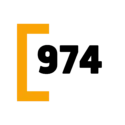Qatar Foundation’s Education City Gift Shop has launched a new product line called Ahlam – ‘dreams’ – which is a collaboration between Belal Khaled, a Palestinian artist and journalist, and a group of women from Gaza who are currently in Doha for medical treatment.

Khaled initially painted the word Ahlam in Arabic calligraphy on a collapsed building in Gaza, symbolizing shattered dreams and representing the children who perished beneath it. Today, through this product line, his artwork has found new life embroidered in Tatreez – the Palestinian cross-stitch – crafted by the women of Gaza. Each stitch is a testament to the spirit and dreams of a community scarred by tragedy, yet bound together by courage.

Every T-shirt in the product line is embroidered by hand, which takes an artist anywhere between 8-10 hours. A limited number of shirts are currently available for sale in the Education City Gift Shop branches located within the 2015 building (Qatar Foundation Headquarters) and Multaqa (Education City Student Center). All profits go directly to the women.
The idea of creating this product line was born in Tatreez workshops held by Qatar Foundation (QF) volunteers. One of the volunteers said: “Initially the idea was just to have a space where women could come together and do something they enjoy. But it quickly became obvious there was a lot of talent so naturally we started thinking of how we could provide an opportunity for the women to showcase their talent and also use it to earn a livelihood.”

Nisreen Alshbani, one of the artists who is part of the Ahlam product line, said: These Tatreez workshops gave us something to engage ourselves in and come together in an act of quiet ‘resistance’ through art. Separated from our families and loved ones, they helped us form a community, a much-needed sisterhood, that goes beyond these workshops.”
Enshirah Alshawaf, another artist working on Ahlam, said: “Tatreez was a childhood hobby, but life’s demands – raising children and then grandchildren – kept me away from it. I never imagined I’d revisit it, let alone find a livelihood in it in my 60s.
“All we felt we could do for our families was pray, but now through this project we are also able to financially support our families. It has given us purpose; we do not feel like we are helpless bystanders – we are able to help them.”
Speaking on the collaboration, Belal Khaled, said: “Dreams are all we have. Dreaming is all we can do.”
